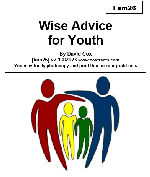Barnes Albert – Commentary
by Albert Barnes
This is an excellent Bible commentary by the Presbyterian minister Albert Barnes.
Albert Barnes (1798-1870)
Albert Barnes was a Presbyterian minister who produced a number of valuable commentaries on the Bible. He wrote Old Testament commentaries on Job, Psalms, Isaiah, and Daniel, and a complete set on the New Testament. These works have been extremely popular in both Europe and the U.S., selling into the millions of copies, though his Old Testament productions are generally considered to be superior to the New Testament works — which were written mostly for Sunday school teachers.

Baxter Directions for a Peaceful Death is an article of 15 points on a Christian approaching his death and what he should be thinking about. This theme is good for the sick, but everybody should also meditate on these things. (Baxter is reformed).
Educated at Princeton seminary, Barnes was a dedicated student. He arose early in the morning and studied by lamplight — which sustained practice almost cost him his eyesight. For forty years he maintained an association with the First Presbyterian Church in Philadelphia.
Barnes had a strong sense of morality and was much opposed to the practice of slavery. In 1846, he wrote a book, An Inquiry into the Scriptural Views of Slavery.He also preached against the use of alcoholic beverages, urging total abstinence.
In 1868, Barnes was invited to deliver a series of ten lectures on “Christian Evidences” in New York. These were subsequently incorporated into a book and constitute a masterful defense of the Christian religion.
Though a Presbyterian, Barnes argued that man possesses freewill; he urged his auditors exercise their power of choice, and to respond to God’s offer of salvation. These views brought him into serious conflict with strict Calvinists. After the publication of his commentary on Romans, Barnes was charged with doctrinal heresy, and put on trial (1835) by his presbytery. Ultimately, the church’s general assembly acquitted him, though with some censure. His teaching on “unlimited atonement” (contra Calvin) helped generate a split in the Presbyterian Church in 1837. Unfortunately, the celebrated commentator was unable to divest himself of all his Calvinistic baggage.
Albert Barnes nurtured some unusual ideas. It is reported that he would not fish with a baited hook inasmuch as he considered that practice to be a form of deception (yet see Mt. 17:27).
Moreover, in his commentary on Job, when discussing the ostrich (39:13ff), he speculated that this curious creature was “the connecting link between quadrupeds and fowls.” Not even this generally conservative scholar was immune to the influence of evolutionism — though his work on Job was published a dozen years before Darwin’sThe Origin of Species came from the press. Too, under the influence of Thomas Chalmers (1780-1847), a Scottish church leader, he subscribed to the “Gap Theory,” which, he conceded, was “designed to solve some of the growing difficulties from the new science of geology.” He was intimidated by the assertions of the “scientism” of his day, hence, in weakness, compromised the biblical view of creation.
In December of 1868, at the age of 70, he delivered an address in Philadelphia titled, “Life at Threescore and Ten,” which contained his reflections on things he had learned, and had come to appreciate over the years. At the conclusion of his presentation, he cited these lines:
May some disease, not tardy to perform
Its destined office, yet with gentle stroke,
Dismiss me weary to safe retreat
Beneath the turf that I have often trod.
He hoped to die a quick death, rather than one of lingering agony. Coincidentally, two years later to the month, he died instantly while making a call of condolence at the home of a friend.
It is a sad footnote to history that Barnes has largely been ignored in the biographical sketches of influential theological writers. In the New International Dictionary of the Christian Church, he merits only a half-dozen sentences, while the infamous Karl Barth is granted an entire page. In the Oxford Dictionary of the Christian Church he is mentioned not at all.
Article taken from Christian Courier
Barnes Albert – Commentary

fam26 Wise advice for youth version 2.1 is a tract for helping youth to consider the wisdom and guidance of their parents.
Excerpt: Youth is a time of much energy, strength, and activity. They “get bored” very easily because they always want to go, move, have experiences, and do things (but they do not include work in these desires as a rule). To be quiet, calm, and have patience is not normal for youth. On the other hand, the “beauty” of age is its experiences and understanding (wisdom). (They have been down life’s road before and made all these mistakes themselves, in their own life.)
Read the Tracts: fam26 advice for youth version 2.1.
MySwordmodules is a website dedicate to the MySword Bible Program for Androird devices. We host MySword Modules.

I am Pastor David Cox, the Webmaster of this site. I am an independent Baptist Missionary pastor working in Mexico City since 1984. Many churches reject a fundamentalist because we do not accept the many false doctrines that modern churches have in common. We believe the Bible, and we preach and teach it. I have written over 400+ tracts and more than 60+ books which are just an extension of my pulpit ministry. All are free. Please help us keep this good material on the Internet for the world.
If you like what you see on this website, please help us with even a small donation. These sites cost me about $10 per month per site. Please donate something to help with this burden.
----->>>
Note: I am a local church missionary, and you can find my home church here (davidcoxmex.com) where you can write a check to our ministry and receive a tax-deductible receipt at the end of the year.
